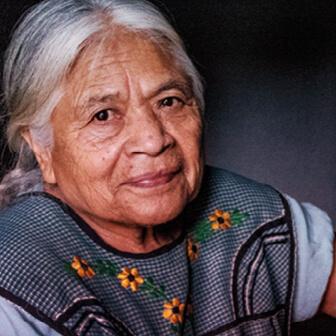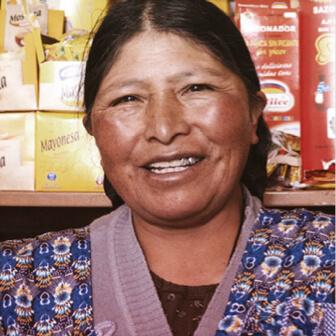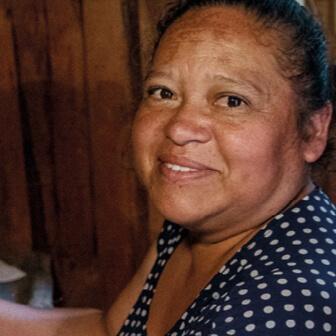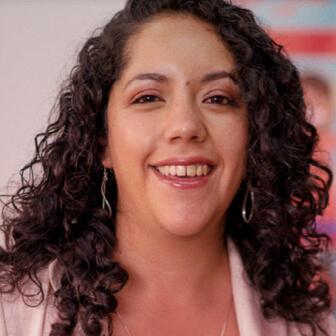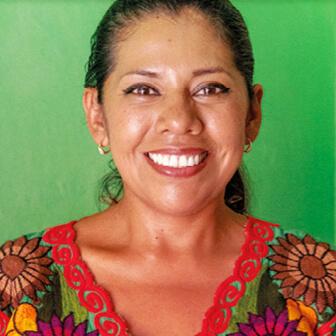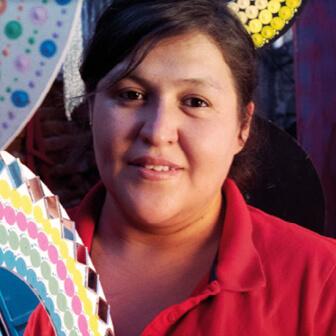Addressing Chronic Disease in Latin America: Pro Mujer’s Health Pilot Program One Year Later
4 octubre, 2011
Blog, Health
By Jana Smith, Project Manager, Health and Human Development Services with contributions by Dr. Gabriela Salvador, MD, MPH, Director of Health & Human Development
BLOG UPDATE (NOVEMBER 8, 2011) – To listen to Dr. Salvador talk about how Pro Mujer is addressing chronic diseases in Latin America, click here to listen to her on an EarthSky.org podcast.
BACKGROUND ON PUBLIC HEALTH ISSUES IN LATIN AMERICA AND WORLDWIDE
While maternal and child health interventions reach a relatively broad demographic in Latin America through the public health care sector, there are still no solutions to address the increasingly serious problem of chronic diseases such as hypertension, diabetes, sexual and reproductive health problems and breast and cervical cancers, among other illnesses.
Growing urbanization throughout the region has led many to lead a more sedentary lifestyle and greater consumption of fast food resulting in shockingly high figures of obesity, and by extension, chronic disease, especially in poor segments of the population. To combat these conditions, prevention or early detection is vital, since most of these diseases are “silent;” this is complicated by the high opportunity costs associated with access to care for women from impoverished communities who work in the informal sector. These women support themselves and their families with daily sales, and therefore must decide between lost income and preventive healthcare, the value of which may not be fully recognized until an illness has reached an advanced stage.
In addition to health implications, these diseases have tremendous economic implications for both developed and developing countries. According to a report published by the World Health Organization in April of 2011, non-communicable diseases cause 60% of deaths worldwide, killing 36.1 million people annually. “Non-communicable diseases will evolve into a staggering economic burden in the coming years…It’s a huge impediment to the mitigation of poverty” said David E. Bloom, Professor of Economics and Demography at Harvard University’s School of Public Health in a June 2011 Bloomberg interview.
PROJECT HISTORY
Pro Mujer began its operations in Nicaragua in 1996 and was the first replication of the Pro Mujer model after its founding in Bolivia in 1990. In 2005, Pro Mujer in Nicaragua (PMN) began offering health services with great success, particularly in terms of the usage of Pap smears and contraceptive methods. However, its lack of focus on chronic disease, its per service fee structure, and minimal commercial value prevented the program from achieving greater coverage, impact, and long-term financial sustainability and permanence.
In 2009, Pro Mujer decided to begin an ambitious project to rework its health model in Nicaragua. The aim of this innovative health pilot was to provide clients with comprehensive and affordable primary health care services while addressing the increasingly-serious problem of chronic disease. Between October of 2009 and October of 2010, PATH provided technical expertise in analyzing the market and developing key health elements of the program while Global Partnerships provided funding to launch the pilot which officially started in October/November of 2010. In addition, the Linked Foundation provided and continues to provide, invaluable support and funding.
Together, the team determined that the adjusted model would aim to comply with four key criteria: market responsiveness, potential for health impact, operational viability, and economic sustainability. Program design was divided in six phases: structured interviews with industry experts, assessment of health-related needs and opportunities, operational assessment of Pro Mujer, market assessment to determine attractiveness of package for clients, pilot design and a financial assessment.
THE PILOT MODEL
After extensive research and analysis, Pro Mujer rolled out the newly-designed model in October of 2010 at one of Pro Mujer’s community centers in León, Nicaragua. Clients were then able to receive a high-quality, low-cost health package for just US$2.40 a month. The preliminary results have been astonishing and the lessons learned have great implications for Pro Mujer’s operations in other countries as well as other regions around the world.
This comprehensive health package includes:
- A focus on prevalent conditions with an emphasis on chronic disease: Early detection of hypertension, diabetes, obesity, sexual and reproductive health problems, breast and cervical cancer, among other diseases, are critical. These conditions were selected due to their prevalence in the target population and a lack of successful attention in the public sector.
- An upfront fee: The full cost of the package was priced and paid for in two or three annual installments at the time of loan disbursement. Removing the link between the moment of usage and payment has been shown in many studies to increase access, especially for low-income populations.
- Services and Delivery:
- Screening package: This component includes a systematic delivery of tests (Pap smear, body mass index, blood and urine exam, glucose test, blood pressure, and breast exam) for early detection of key conditions. Screenings are conveniently scheduled during loan disbursement meetings to lower opportunity costs since clients are physically present at Pro Mujer centers at this time.
- General physician consults: Clients can utilize these consults to receive interpretations of screening results, follow-up on detected conditions, or for preventive or curative primary care at their discretion. These services are delivered in clinics at Pro Mujer centers and visits are scheduled to remote rural areas to ensure access for all clients.
- Referral system: Pro Mujer facilitates access to specialists, laboratories, and other key services by negotiating discounts for its clients through strategic alliances.
- Health education: The health curriculum was redesigned using a new, informal education methodology focused on healthy habits and the importance of early detection. Its implementation was accompanied by intensive staff training. These health trainings are delivered by trained credit officials during loan repayment meetings to ensure that all clients are reached frequently and to keep down costs for clients.
PRELIMINARY RESULTS
|
Indicator |
Nov 2010 -July 2011 |
% Positive |
|
Screenings |
4,673 |
29.4% |
|
Consults |
4,687 |
N/A |
|
Pap Smears |
2,196 |
5.5% |
|
Clinical Breast Exams |
3,222 |
3.5% |
|
Glucose Tests |
3,587 |
15% |
|
Blood Pressure Measurement |
5,893 |
6.8% |
|
Body Mass Index |
2,830 |
67% |
When market research was conducted to measure client satisfaction, 81% said that they were satisfied with the package and 78.5% believed that the package was better than comparable services available in the market. Financial analysis shows that the pilot is in line to cover both full direct and indirect costs within a year as projected.
KEY LESSONS LEARNED
Despite much initial success as shown, the pilot has taught Pro Mujer a great deal about delivering preventive services through microfinance using a business model that will benefit the pilot and the other Pro Mujer country operations as well as other industry players.
Breaking paradigms. Health care is often thought of as a very specialized field which requires specialized staff. Experience throughout the world has shown that non-health personnel can be very effective at transmitting key health messages. Pro Mujer’s pilot has shown that coverage, efficiency, and in the long-term impact, is greatest when loan officers – who already have close relationships with clients – deliver health training. On the other hand, health services are often thought of as a social service. Pro Mujer has learned that the marketing and sales techniques of its front-line staff are key to making a primary care service attractive to clients.

A Pro Mujer credit officer provides a health training session on kidney disease prevention prior to facilitating the financial aspects of a communal bank or lending group meeting.
Listening to clients. Constant monitoring of customer satisfaction has enabled Pro Mujer to adjust the package and plan for more significant changes. Although clients have expressed their satisfaction, preventive packages only have short-term commercial appeal for people who do not have conditions. It is vital to constantly improve the value of the package and surpass client expectations. Payment mechanisms are also key. Although the shift away from a per service fee structure service greatly increased usage, clients prefer to pay for the package in monthly installments along with loan repayments instead of lower, individual loan disbursement amounts.
Training is key. It is important to thoroughly train all staff, including those in both health and financial, in health education, social marketing and strategy. Training programs to clients are crucial to raise awareness of the value of early intervention and provide tools to improve lifestyle choices.
Rural delivery is a challenge. Not only is service delivery naturally a greater challenge in remote areas, but administrative procedures such as appointment scheduling and test delivery are also complicated by decentralized service delivery. It is necessary to “piggyback” when possible, carefully monitor and adjust processes, and look towards technology to facilitate access and improve efficiency in the future.

Benita Montalvan, a Pro Mujer credit officer, endures rough terrain in order to deliver preventive health education and facilitate communal bank meetings.
LOOKING FORWARD
Pro Mujer is currently planning the second phase of the pilot with the lessons learned from the first phase. Measures are being taken to improve the payment mechanism, as requested by clients, to make the package more accessible. This has been one of the key points of constructive criticism and it is therefore expected that this change will help ensure continued purchase of the package.
In light of the high prevalence of obesity detected through the screening component, Pro Mujer is analyzing how to incorporate nutritional counseling into the service package and investigating ways to reinforce the practical tips delivered in training sessions so that they lead to concrete behavior change. It is also believed that the services of a nutritionist would add commercial value to the package.
Market research reflects a great demand for medication, specialty consults, and dental care. Pro Mujer is looking into different options to facilitate access to these services, whether it is by strengthening current alliances or developing new relationships with partner organizations. These high-demand services would increase clients’ willingness to pay and also enable Pro Mujer to incrementally offer a more complete primary care package to its clients. In order for clients to be able to complete specialized treatments that Pro Mujer’s package cannot cover, the organization is evaluating the incorporation of a capped health loan for existing clients.
As we continue to evolve as an organization, this pilot health care program will be instrumental to advancing our mission in support of Latin America women who are living in impoverished communities.
